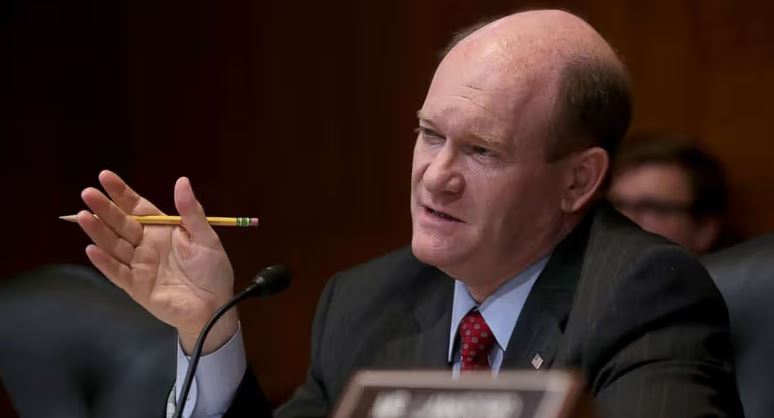Senator Chris Coons, a prominent member of the Democratic Party in the United States, has unveiled a discussion draft of a bill aimed at extending the African Growth and Opportunity Act (Agoa) for a substantial 16-year period. However, his proposal includes a critical provision for an immediate “out-of-cycle” review of South Africa’s eligibility for Agoa. This move could potentially result in South Africa’s removal from the preferential trade program as early as next year.
Agoa has historically provided significant benefits to South African exporters, particularly in the automotive, fruit, and wine industries, granting them duty-free access to the lucrative U.S. markets. Senator Coons released the draft bill following the recent annual Agoa Forum held in Johannesburg.
The discussion at the Agoa Forum predominantly revolved around the renewal of Agoa, its duration, and potential amendments to its terms. Agoa primarily offers duty-free access to the U.S. market for most exports from eligible sub-Saharan countries, with South Africa being one of its major beneficiaries. However, concerns have recently arisen in the U.S. Congress, led by Senator Coons and Republican Senator Jim Risch, regarding South Africa’s eligibility. They argue that South Africa’s warm relations with Russia pose a threat to U.S. national security and foreign policy interests, potentially violating Agoa’s conditions.
While the Biden administration has announced the removal of several countries from Agoa due to military coups or human rights violations, South Africa remains on the list despite congressional reservations. Senator Risch, as the leading Republican on the Senate Foreign Relations Committee, has criticized the administration for allowing South Africa to host the Agoa Forum and maintaining its beneficiary status, citing South Africa’s interactions with Hamas and Iran.
Senator Risch’s concerns stem from South Africa’s ties with Russia, Hamas, and Iran, particularly highlighting International Relations and Cooperation Minister Naledi Pandor’s recent contact with Hamas leader Ismail Haniyeh and her visit to Iran. Pandor’s office clarified that her visit to Iran was partly to facilitate President Ebrahim Raisi’s upcoming visit to South Africa, which was later canceled due to potential negative implications on U.S.-South Africa relations.
Senator Risch has called for Congress to take “course-corrective action” in response to the administration’s perceived failure to address these concerns. Senator Coons’ unexpected proposal for an “out-of-cycle” review is a part of this effort.
Coons’ draft bill, titled the “Agoa Renewal Act of 2023,” seeks to extend Agoa for a more extended 16-year period, offering businesses the predictability required to invest in sub-Saharan Africa. This extension is crucial at a time when many firms are exploring diversification of their supply chains and reducing their reliance on China. Increased U.S. business investment in sub-Saharan Africa is expected to support regional economic growth and development while strengthening the United States’ position on the continent.
The bill also aims to integrate Agoa with the African Continental Free Trade Agreement (AfCFTA) by modifying Agoa’s rules of origin to include inputs from North African AfCFTA members in meeting the requirement that 35% of a product’s value originates in the region. However, North African countries would need to adhere to Agoa’s eligibility requirements related to governance, human rights, and foreign policy to participate fully.
Senator Coons’ draft bill addresses various concerns raised during the Agoa Forum, including the need to strengthen regional supply chains and adapt Agoa’s rules of origin to boost program utilization.
Another significant aspect of Coons’ proposal is the adjustment to the so-called “Mauritius Clause” within Agoa. Under current Agoa regulations, nations lose their eligibility as soon as they achieve high-income status, defined by the World Bank’s measure of GNI per capita, which is currently set at $13,845. Coons suggests that countries should only lose their Agoa status if they maintain “high-income” status for five consecutive years.
Furthermore, Coons’ draft bill suggests extending the interval between the annual eligibility reviews of all 49 sub-Saharan states to every three years, aligning Agoa with the standard timeline for other trade preference programs, such as the Generalized System of Preferences.
